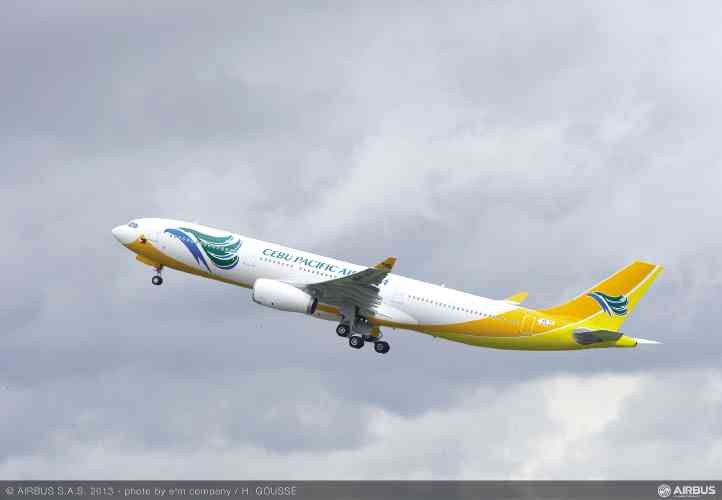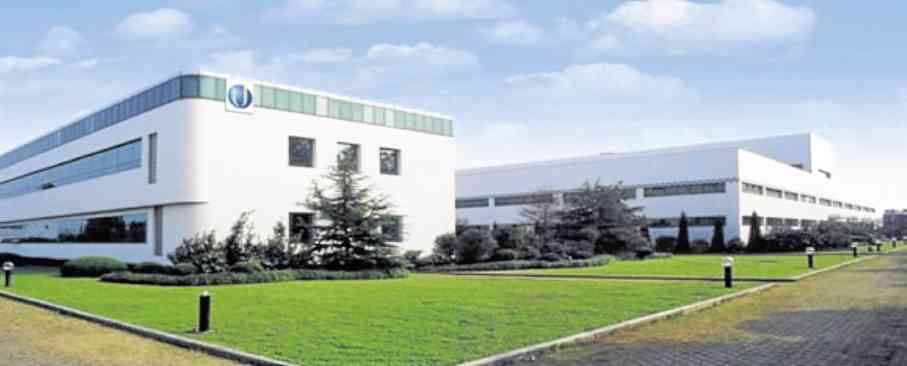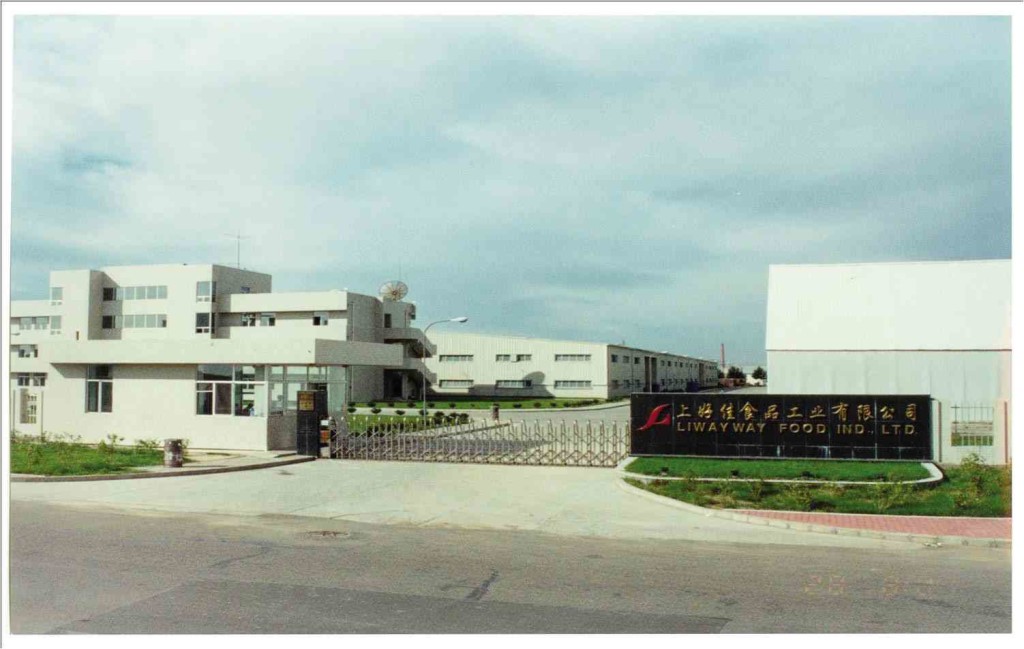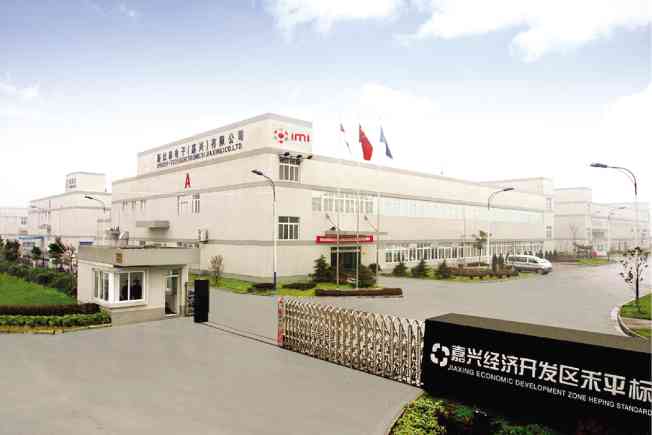Exploring the Middle Kingdom

Cebu Pacific of the Gokongwei group operates regular flights to and from China. www.cebupacificair.com
Most of them trace their family roots to the “Middle Kingdom.”
But when China started opening up its massive economy to global trade, big business groups in the Philippines did not look at opportunities in this vast market for sentimental reasons.
With a population of 1.3 billion and increasing consumer affluence, China has always offered an attractive market for large Philippine firms looking to expand overseas.
Ahead of President Rodrigo Duterte’s historic state visit to China, we take a look at some Philippine enterprises that moved ahead of the pack and built significant businesses in this dynamic market.
Oishi Group (Liwayway Marketing Corp.)
The Oishi group (Liwayway Marketing) is one of the most successful Philippine-based business to foray into mainland China.
Incorporated in 1966 to distribute starch, coffee, confectioneries, and basic commodities, Oishi has grown into a regional powerhouse.
In China alone, it is now among the top five snack food producers for the sweet and savory snack food category.
Businessman Carlos Chan started exploring opportunities in China, the home of his ancestors, as early as 1984, just at the time that the mainland was cautiously opening itself to foreign investors.
He opened in Shanghai in 1993 the first of many companies that form what is now Liwayway Investment (International) Co. Limted (LIICL), the holding company for Liwayway’s operations in China. LIICL has since set up shop in strategic areas outside Shanghai, such as Harbin, Hubei, Tianjin, Hebei, Zhengzhou, Suzhou, Xuzhou, Kunming, Jiangxi, Shandong and Xinjiang.
In 2008, LIICL acquired Great Lakes, comprising two companies that produce fruit juices, drinks and concentrates. The group acquired another beverage factory in China in 2011: Hebei Xiao Health Food Co., thus diversifying into the production of various fruit purees such as peach, apple, strawberry, apricot, pear and kiwi. In 2015, the group acquired a Tianjin-based company that manufactures cocoa-based products.
To date, Oishi has 16 production sites in China. Its latest factory was as a result of the acquisition of the Chinese chocolate business of Spain’s Cola Cao, which has a factory in Tianjin.
Jollibee Foods Corp.
After dominating the local fast-food scene, going overseas is a natural progression for Jollibee Foods Corp.
The Bee entered China in 1994 with the acquisition of a string of local brands. Its biggest business in the mainland is Yonghe King, one of the most well-known non-Western restaurant chains in this market. The chain now has 321 stores.
In 2008, it took over Hong Zhuang Yuan, a congee chain, which now has 40 restaurants. San Pin Wang, a noodle chain acquired in 2010, now has 59 stores.
But apart from gobbling up local chains, Jollibee has likewise gained a foothold in China’s western food scene when it led in 2014 a consortium that committed to invest about $300 million in expanding and operating the Dunkin Donuts network.
Through unit Jollibee Worldwide Pte. Ltd. (JWPL), the group owns 60 percent of a joint venture that has committed to open and operate a minimum of 1,459 stores in China over a period of 20 years, based on an agreed development schedule.
Lucio Tan Group
Eton Properties Group has multiple large-scale real estate developments in the mainland. The group’s one-billion yuan “The Bank Center” has become one of the most symbolic pieces of architecture in Xiamen. It has a 460-room five-star luxurious business hotel “Eton Hotel” in Shanghai and a private club “International Club” in Xiamen. The group has a landbank of more than two million square meters in key urban hubs in Hong Kong, Shanghai, Xiamen, Dalian, Shengyang, Beijing and Shenzhen. In Dalian, one of the most heavily industrialized areas in the mainland, the group bagged the project to redevelop a former zoo into a 6-billion yuan ($1 billion) five-building mixed-use complex. In Shenyang, the transportation and commercial hub of northeastern China, the group has an 8-billion yuan ($1.2 billion) 10-building project.
This is also the only key conglomerate from the Philippines with a local banking unit, Allied Commercial Bank (ACB), domiciled in China. This used to be Xiamen Commercial Bank based in Xiamen, in Fujian Province. ACB, a subsidiary of Philippine National Bank, is allowed to conduct full banking services in foreign currency to resident and non-resident natural persons including compatriots from Hong Kong, Macau and Taiwan. Its license also allows ACB to service foreign trade and loan requirements of enterprises owned by local residents.
Philippine Airlines also has regular flights to and from China.
SM Group
4The Sy family’s strategy in China is to open one shopping mall per year, targeting the second- and third-tier cities where there’s less competition.
SM Prime Holdings debuted in China in 2001 when it opened SM City Xiamen in Fujian. This mall was expanded in 2009 with the opening of the SM Xiamen Lifestyle mall, which caters to increasing customer affluence and demand for lifestyle-oriented destinations in the city.
After Xiamen, SM opened in 2005 its second shopping mall in Jinjiang City, likewise in Fujian. This is the hometown of SM patriarch Henry Sr. The year after, SM opened SM City Chengdu. SM expanded to Jiangsu in 2011 with the opening of SM City Suzhou in Wuzhong District, followed by the opening in 2012 of SM City Chongqing in the Yubei District, Southwest China. In 2015, SM City Zibo in Zibo City was opened in Shandong.
Moving forward, SM Prime wants to build more shopping malls in Fujian, which is on China’s southeastern coast, rather than scatter itself all over the mainland, SM Prime’s new president Jeffrey Lim said.
SM Prime’s largest shopping mall in China is set to open this year in Tianjin.
As of end-June, SM Prime had 58 malls in the Philippines and six in China for a gross floor area (GFA) of 8.5 million square meters. The mall operations in China, which accounted for 9 percent of mall revenues, contributed P2.1 billion in revenues in the first semester of 2016, rising by 8 percent year-on-year.
San Miguel Group
5Iconic beer-maker San Miguel Brewery Inc. (SMB) is the 10th largest brewer in Asia by volume, with leading positions in the Philippines and Hong Kong as well as a presence in strategic growth markets in China and Southeast Asia. SMB currently operates two breweries in China, one in Baoding City, Hebei Province and another in Shunde District, Guandong Province. It also operates a brewery in Hong Kong’s New Territories.
San Miguel Packaging Group, on the other hand, has three facilities in China, one each for glass, plastics and paper. The packaging business is a total packaging solutions business servicing many of the leading food, pharmaceutical, chemical, beverages, spirits and personal care manufacturers in the region.
Gokongwei Group
Universal Robina Corp., now a regional powerhouse, has three production hubs in China located in Jiangsu, Guandong and Shanghai. China was a target market starting 2000 when URC began to expand its branded consumer good business more aggressively into other Asian markets, primarily through its subsidiary, URC International. The following are URC International’s units in China: Shanghai Peggy Foods Co. Ltd., Guangzhou Peggy Foods Co. Ltd., and URC Hongkong Co. Ltd. The three products in China are snackfood (prawn crackers), biscuits (ACES Magic crispy sandwich) and beverage (ACES Instant Cereal).
Through a privately held unit, the group has embarked on mixed-use projects in Shanghai, Xiamen, Chengdu and Taicang.
Publicly listed property development arm, Robinsons Land Corp., recently debuted in mainland China’s residential property market with a 1,300-unit masterplanned township project in Chengdu, known as the home of the adorable giant pandas.
Although the group is no stranger to the property sector in China, this is the first property project of the Gokongwei group in China to be folded into RLC. The group got into this project by winning a bidding participated in by 10 investors. RLC bought the right to use the 8.5-hectare property in Chengdu, the capital of Sichuan Province or the “Heavenly State,” last year.
Airline unit Cebu Pacific, meanwhile, operates the following flights to China: Manila to Beijing: 4x weekly; Manila to Guangzhou: 4x weekly; Manila to Shanghai: Daily; Manila to Xiamen: 2x weekly. It also has seasonally operated chartered flights to/from China.
Ayala Group
The Philippines’ oldest business house has interests in China through electronics manufacturing services (EMS) arm Integrated MicroElectronics (IMI) and real estate.
IMI has four facilities in China: Two in Shenzhen, one in Jiaxing and one in Chengdu which employ about 4,864 people as of end-2015. These facilities have a combined production space of 62,580 square meters. Total revenues from China amounted to $279.3 million last year, accounting for 34 percent of IMI’s total business. These facilities in China provide EMS solutions to the automotive, industrial, telecom, computing, medical and consumer electronics. IMI also operates a research and development hub in Shenzhen.
Through Ayala Land Inc., the group also has an interest in the special purpose vehicle created to hold the investment in Tianjin Eco-City (150 kilometers from Beijing), a 3,000-hectare collaboration between the Chinese and Singaporean governments to showcase advanced urban planning and sustainable development.

Shanghai United Cell Biotechnology Co., Ltd. (United Biotech) of United Laboratories. english.unitedbiotech.com.cn
United Laboratories
Homegrown pharmaceutical giant Unilab entered China in 1995 with the establishment of Shanghai United Cell Biotechnology Co. Ltd. (United Biotech), which is engaged in the development, manufacturing and marketing of biopharmaceuticals and vaccines.
Based on its website, United Biotech has a total registered capital of $23.15 million. It occupies a total land area of 20,000 square meters with 7,400 square meters allocated to its current and future manufacturing facilities.


